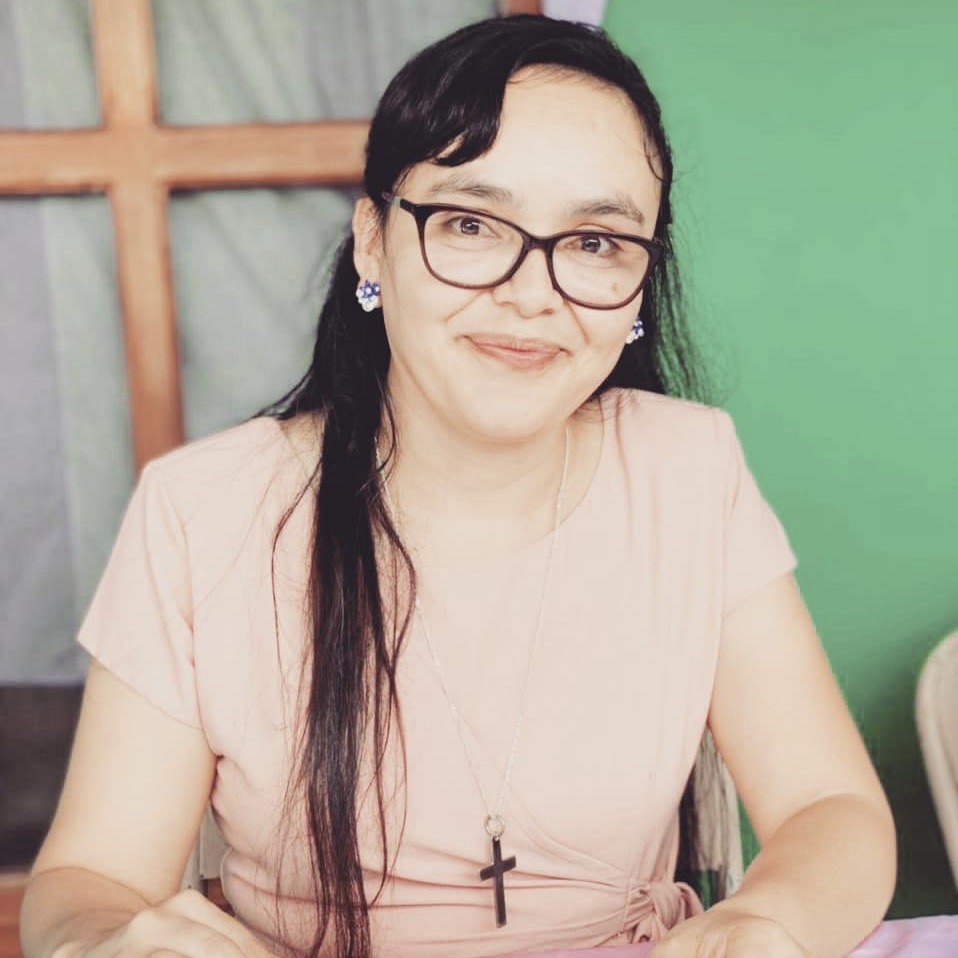The impact of liberating education – Sr. Silvia
Forum on liberating education and the practice of Social Justice of the CND in Nuestra Señora de Guadalupe Region
My life has been greatly influenced by the practice of liberating education and social justice lived by each sister during these 60 years of presence in Honduras.
I want to begin by saying that I am of the generation of sisters who saw the great missionary sisters, who came from Canada and the United States, leave our lands. So, I like to feel that I am one of the sisters who, with a grateful heart, will gather the fruits of passion, love, dedication, and deep conviction for the proclamation of the Kingdom of God that these sisters left in us, and why not in our people, from the Visitation-Pentecost Spirit.
As I look back on the impact CND liberating education and social justice work has had on my life before I joined the Congregation and, of course, after, I see not only how it has impacted me but how I am called to bring it to life today. I would like to take up this memory in the light of 4 important aspects that are reflected in the Magnificat and which, from my experience, have been the way in which the CND has worked for liberating education and the practice of social justice:
The first aspect of the Magnificat is:
- “My soul proclaims the greatness of the Lord”
I saw women who, with their whole being and life, were able to sing the greatness of God in their lives and therefore in the life of the people they accompanied. Women who, in their great achievements and failures, knew how to be a close presence of the God who seeks the planning of the human being, recognising Him first in their own lives. Liberating education and the practice of justice in these lands where there is so much injustice, violation of rights, misery, and great inequalities is a big challenge that unsettles us every day. However it also opens us to recover and give life to the greatness of God and to seek each day to move towards building the Kingdom of God.
Learning to discover the greatness of God is how the practice of justice and liberating education was brought to life in these lands.
The second aspect of the Magnificat is:
- “The Almighty has done great things for me”
Liberating education and the work for justice have also been touched by this experience of helping to dignify the person from the recognition that from the moment of his conception GOD loved him and dreamed him to be fully free. Therefore, the prophetic presence of the CND sisters in the Region has been moved by this spirit of recognizing in themselves and in the people how God, amid these realities, continues to do great things and that his call is so that together with others we can go on developing these “great things of God” with small gestures in the daily life.
The third aspect of the Magnificat, with which I identify the liberating education and social justice work of the CND in the region, is:
- “He has filled the hungry with good things, and the rich he has sent away empty.”
The active hope, the wise strength, the joy, and the discerned rebelliousness of wanting to be and accompany the evangelical processes from the peripheries or the little ones who are most in need is and has been due to the firm conviction that they are God's favorites. The struggles and work in the projects, parish pastorals, and all accompaniments done by the CND in our region, even amid all the limitations and difficulties experienced, made me see and recognize women who are daring and capable of seeing past the structures. They stand and stay with those who need it most. All these are to make the dream of God come true so that those who suffer the most can also have access and continue to walk on their own.
- “Mary stayed with Elizabeth for 3 months”
Liberating education and working for justice means giving everything in the best possible way with the joy of knowing that we give but also receive. Formation and accompaniment have been staying to make a more liberating and integrated process.
This “Staying” based on the work of the CND in the region is not synonymous with being indispensable or seeking to remain in a place because of attachments that can occur from our human fragility. But I can say from my experience that this “Staying” has been more of closeness, of respect, of what we call becoming part of the people, of learning to walk and love the people with all that they are, and to fight together for their liberation and greater humanization.
In conclusion, I can say that for me this is the legacy that we have received and that we continue to seek to bring to life in the region from the Spirit of Visitation-Pentecost: to be women of active, joyful, dreaming hope and to continue to believe that the joy and the dream of life of God will come to life in those who need it most.
WOMEN OF COMPASSION, JOYFUL SPIRIT, AND SORORITY FOR OUR WORLD TODAY.
